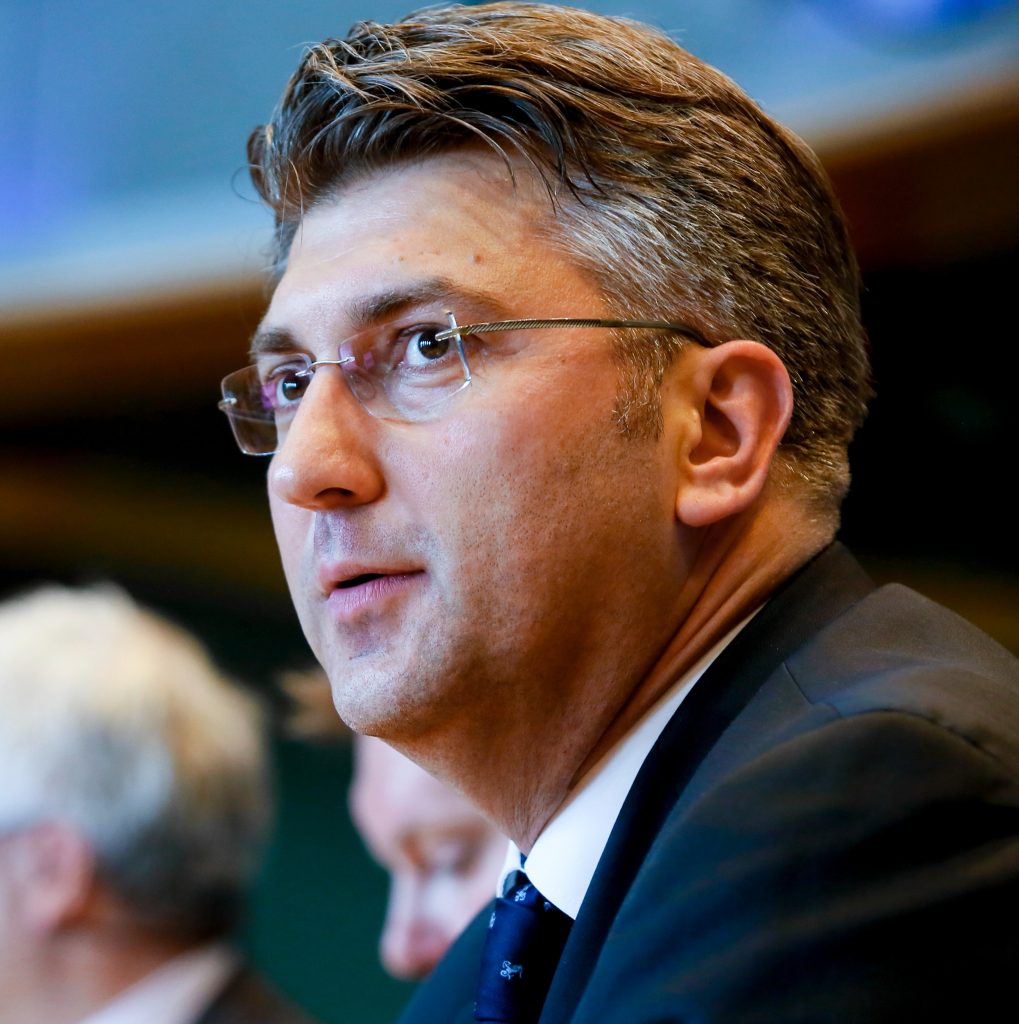Ukrainian President Volodymyr Zelensky’s warning that Russia is preparing a conflict in the Balkans has spread fears of a possible war in the region. The media fueled war narratives, often playing with inaccurate headlines. From a verification of the reactions of NATO and the EU, the thesis of an imminent military danger falls, although it is accepted the malicious Russian influence in the Balkans and that vigilance is never perfect. Even the expert argues for Faktoje that the possibility of an interstate war in the Balkans would be unaffordable for Serbia, so it is unlikely to happen.
Zelensky’s warning
Ukrainian President Volodymyr Zelensky warned that Russia may be planning to start a war in the Balkans to divert attention from the ongoing war in Ukraine.
“Pay attention to the Balkans. Believe me, we are receiving information that Russia has a long-term plan,” the Ukrainian News Agency reported Zelensky as saying.
Further, in an interview with the British media “The Sun” Zelensky took the “apocalyptic” scenario one step further by warning of escalation into a Third World War.
“Ukraine is today at the center of a global risk of world war. I really think that Russia will push until the US and China tell it to withdraw from Ukraine. Because Europe cannot do it alone. Russia does not feel the whole world against them. Therefore, we think that they are now preparing other steps in the Balkans and are trying to train, or have already started training some people and will not stop, because their idea is to start a conflict and light other “fires” around. Destabilization through the instigation of new conflicts”. – said Zelensky for The Sun.
Media coverage
The news of Zelensky’s statement was widely reported in the media as an alarm for the Balkans.
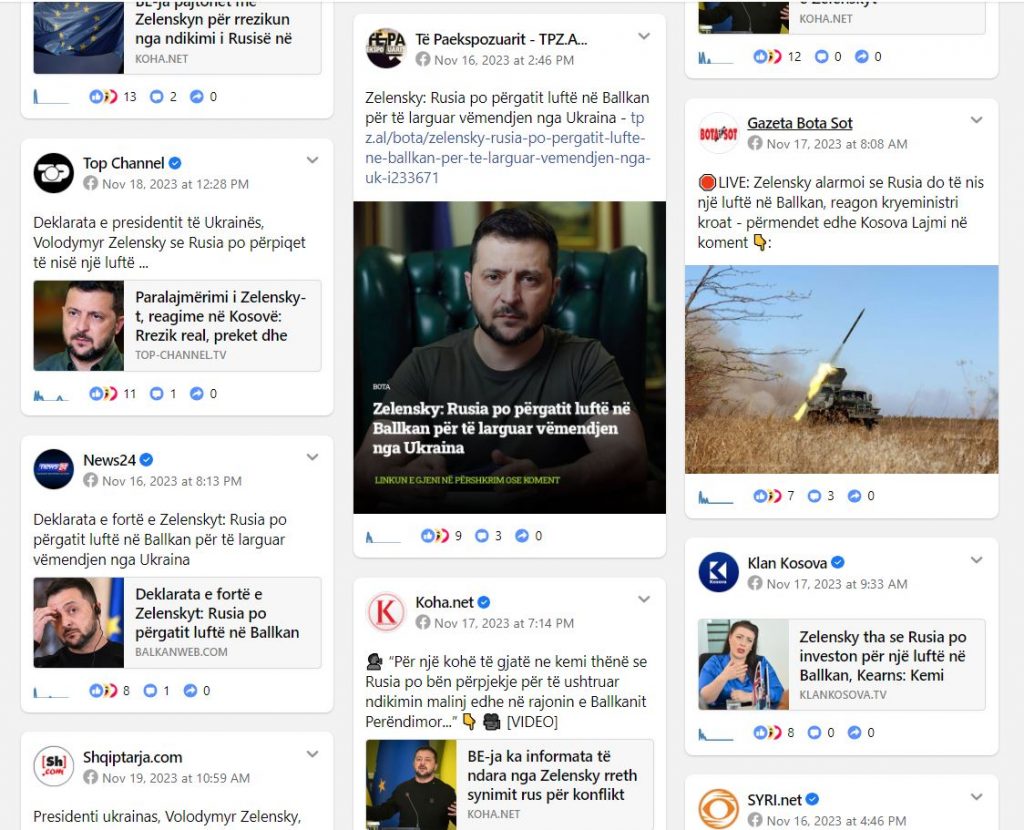
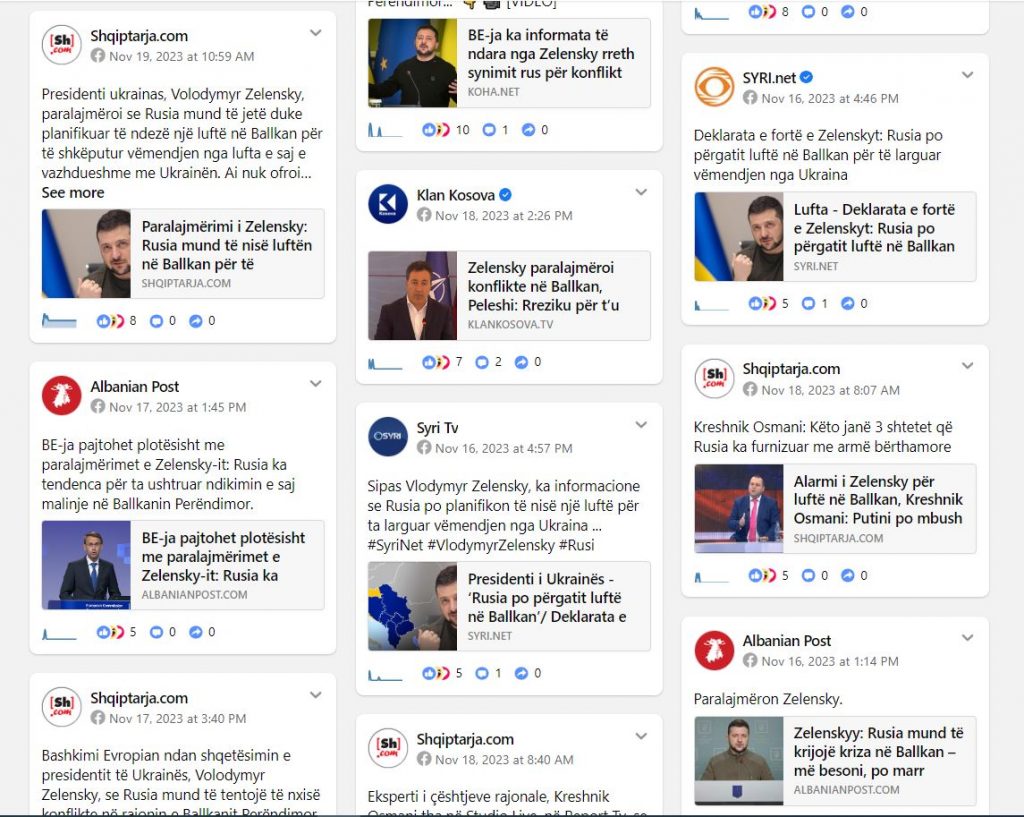
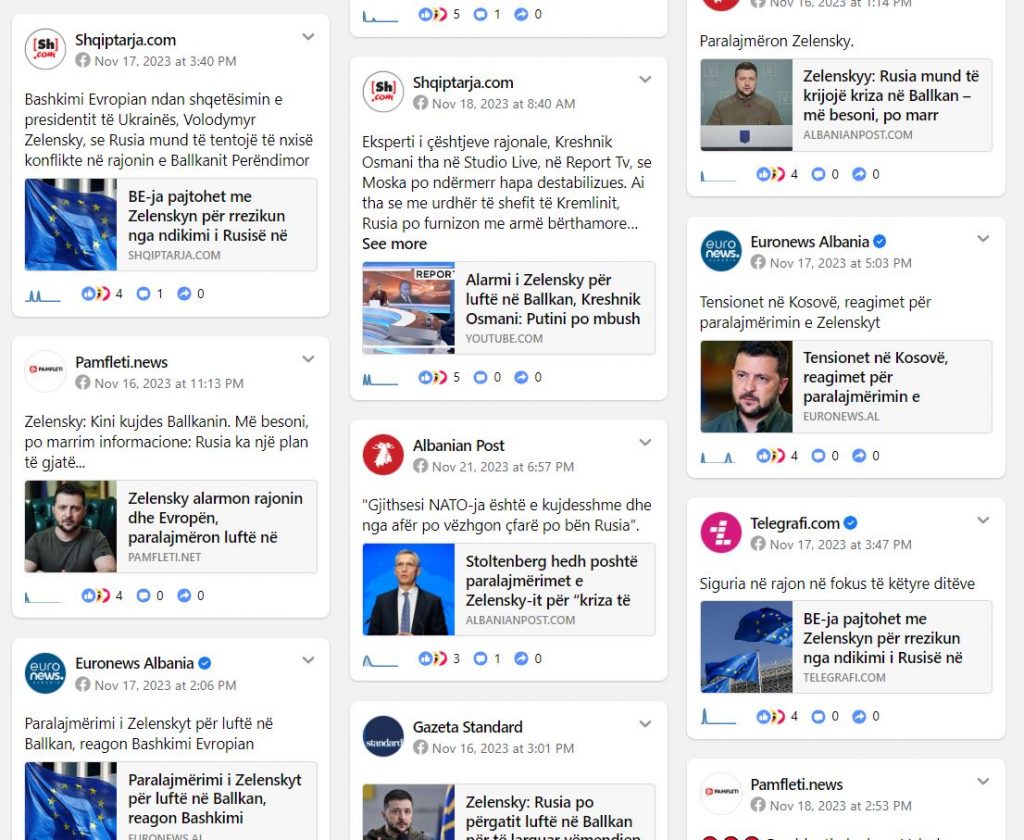
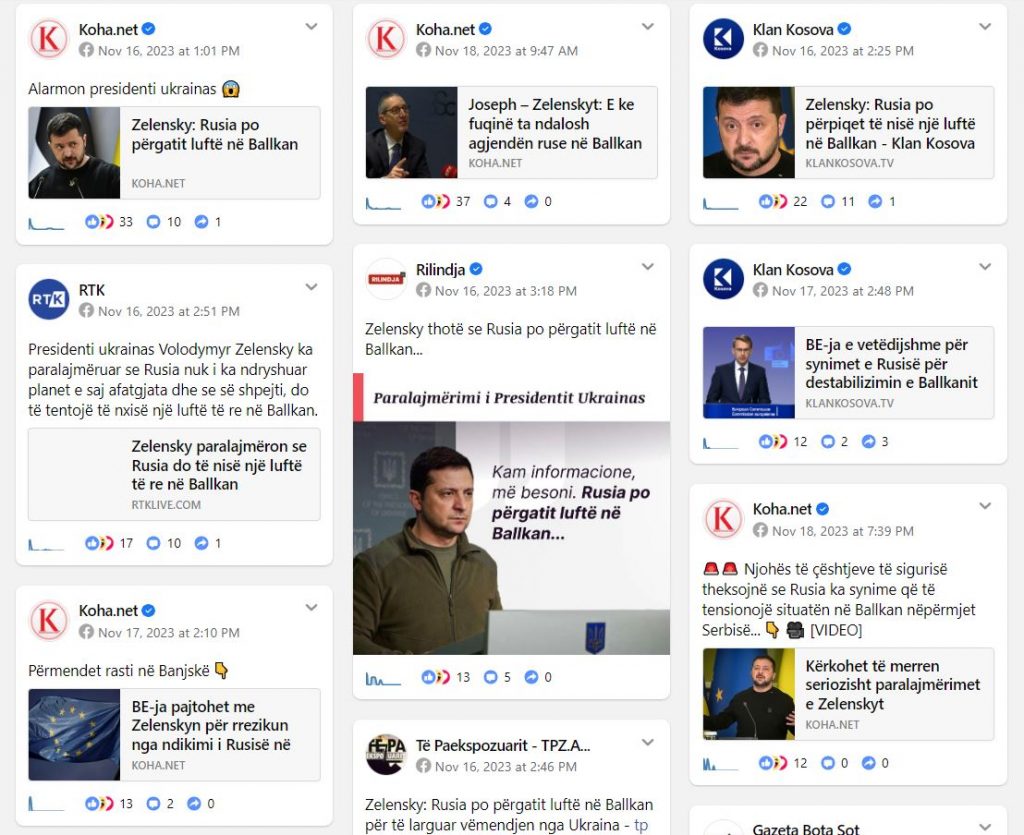
Soon Zelensky’s warning of a possible war was reported as corroborated information, even portraying the European Union as worried by the possibility.
The Russian plan for war in the Balkans, the EU confirms Zelenski’s alarm: We have information!
Peter Stano confirms fears of war in the Balkans instigated by Russia
How Ben Blush’s “Conspiracy” predicted a war in the Balkans
Zelensky’s alarm for war “raises” NATO, Stoltenberg “lands” today in the Balkans
In fact, the statements coming from NATO and the EU, recognize Russia’s continuous efforts to extend its influence in the Balkans, but at no time did they support the expectation of starting a war in the Balkans.
International reaction
Two days after Zelenskiy’s statement, at the start of the Balkan tour, NATO Secretary General Jens Stoltenberg expressed concern about malicious foreign interference, including Russia, which threatens to undermine stability and impede reforms in region.
Also asked by journalists in North Macedonia, regarding Zelensky’s warning, Stoltenberg emphasized that NATO is ready, however, at the moment there is no obvious danger to its members.
“We do not see any imminent military threat from Russia against any NATO ally or region. But of course, we remain vigilant. We have a military presence in this region with KFOR, headquartered in Sarajevo and actually an office in Belgrade. We stand ready to reinforce quickly and do what is necessary to protect any ally against any threat. But I repeat, we do not see any imminent military threat against any NATO ally.” – Jens Stoltenberg, November 21, 2023 .
The European Union was on the same line. In a press conference, the spokesperson of the European Commission answered the question about Volodymyr Zelensky’s warning.
” We have been saying for a long time that Russia is trying to exert its malicious influence on the territory of the Western Balkans. So yes, this is a concern, but it’s not a new concern, we’ve had it for a long time, so we align ourselves with the Ukrainian president on this, and we know that Russia is doing its best to sow discontent, political instability, foreign influence, manipulation of information and so on. others.” – Peter Stano, European Commission , 20 November 2023.
This is how international relations expert Ledion Krisafi sees the situation, who estimates that although Russia has historically tried to have its influence and presence in the Balkans, the fact is that today it has the smallest influence and presence it has ever had in the Balkans. in the last three centuries.
” The vast majority of the region’s population has no sympathy for Russia. Between Russia and the EU, without question they choose the EU. Added to this and the fact that most countries in the region are part of NATO, Russia’s efforts to influence the Balkans are quickly neutralized. ” – explains Krisafi who argues further:
” Unlike the former Soviet Union, which at least had communist ideology and the Russian Empire based on protecting the Christians of the Balkans, today’s Russia has little to offer the region, other than oil and gas. Russia’s economic presence in the region is much smaller than that of the EU.
The parties now have a tacit agreement that the conflict will be limited within Ukraine, as it has been until now. Even more so, that at this moment it seems that neither Russia nor Ukraine can win the war, that is, they cannot defeat each other, and it is unlikely that in the near future there will be significant changes on the front line . – Ledion Krisafi.

Reactions in the region
Kosovo
From Kosovo, President Vjosa Osmani, during the joint conference with the Secretary General of NATO, Jens Stoltenberg, stated that the role of NATO and KFOR in preventing destabilization, not only of Kosovo, is crucial since Serbia remains a factor of instability in the region, aided by from Russia.

“The Russian influence is seen in three main aspects. The first has to do with propaganda, the second with the weapons that Russia constantly sells to Serbia, the third with political support. When these three are combined, it is very clear that it is in Russia’s interest to open a front against the West. And, of course, he wants to open this front in European countries, which are not yet members of NATO. Therefore, this makes our membership in NATO even more imperative ” – Vjosa Osmani
The prime minister of Kosovo himself, Albin Kurti, in a status on the social network Facebook, writes : “The threat from Russia and Serbia to stability, peace and regional security is being noticed more and more. Russia aims to light a fire of crisis in the yard of the EU, to defocus NATO, while Serbia fulfills its territorial ambitions towards its neighbors, according to the “Serbian World” project of Vulini and Vucic .
Albania
From Albania, comments on Zelensky’s statement were made by the Minister of Defense, Niko Peleshi, who cited the return of the policy of zones of influence, after the Russian aggression in Ukraine.
” In regions like the Western Balkans, where there are dormant conflicts, the risk of reawakening exists. We have the aggression of September 24, an aggression that deserves to be called terrorist. These are signs of not a threat so big as to talk about war, but we still have to be careful .” – Niko Peleshi.
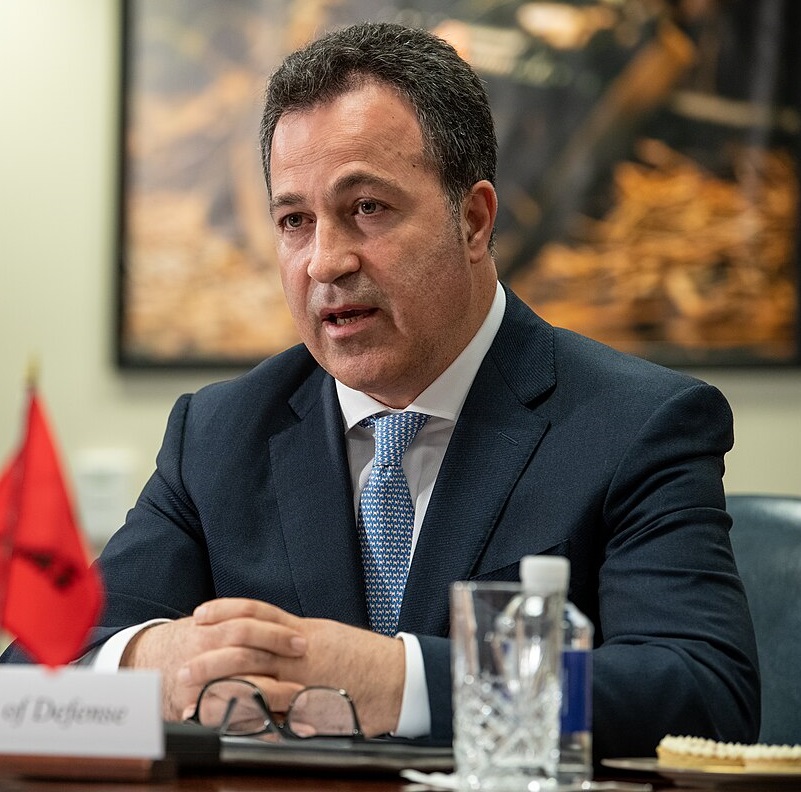
North Macedonia
The Prime Minister of North Macedonia, Dimitar Kovacevski, after the meeting with Stoltenberg, emphasized that the information exchanged between the institutions within the country, but also with the allies in NATO, is that there is no threat to the stability and security of the country.
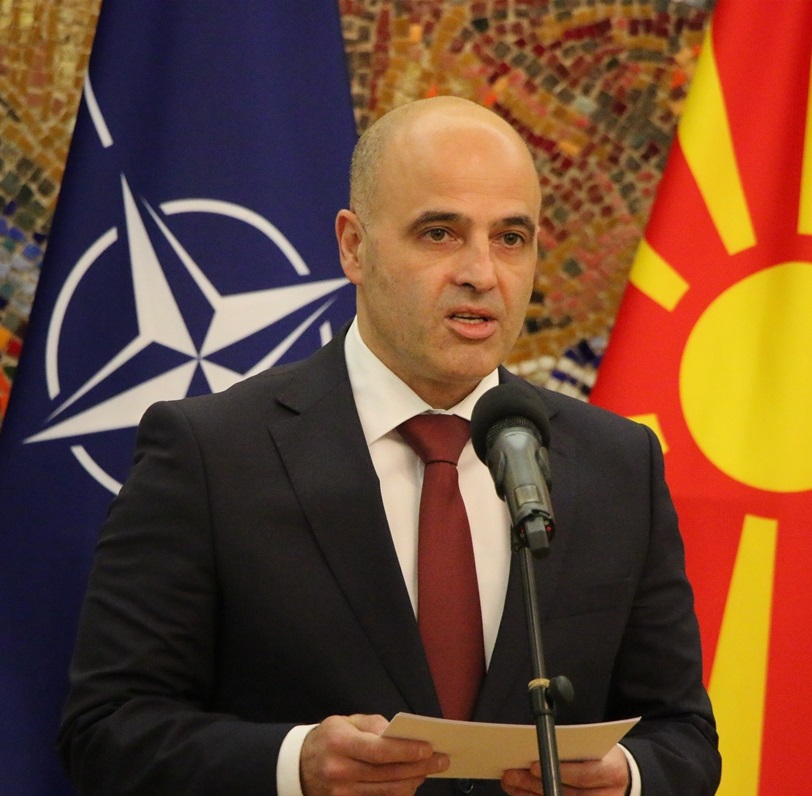
” Certainly, influence from third countries, including Russian influence, exists in the region and they always try to find someone who thinks the same way, but they are not at the level that our institutions have, that NATO member countries have and that our intelligence services have. security and cannot cause the destabilization of our country. – Dimitar Kovačevski.
Croatia
Croatian Prime Minister Andrej Plenkovic also reacted to Zelensky’s statement during a joint conference with the President of the European Council, Charles Michel. Plenkovic called the message of the Ukrainian president “too clear” and emphasized that there may be some “hot spots of instability in South-Eastern Europe.”
Serbia
Although Serbia has not officially reacted directly to Volodymyr Zelensky’s statement, Jens Stoltenberg’s visit to the Balkans also included a stop in Belgrade. During the meeting, Stoltenberg told Vučić that the gathering of Serbian army forces near the border with Kosovo, after the September 24 attack in Banjska, does not help calm the tense situation between the two countries.
In his response, Vučić told NATO Secretary General Stoltenberg that the Serbian army has never exceeded its rights and powers .
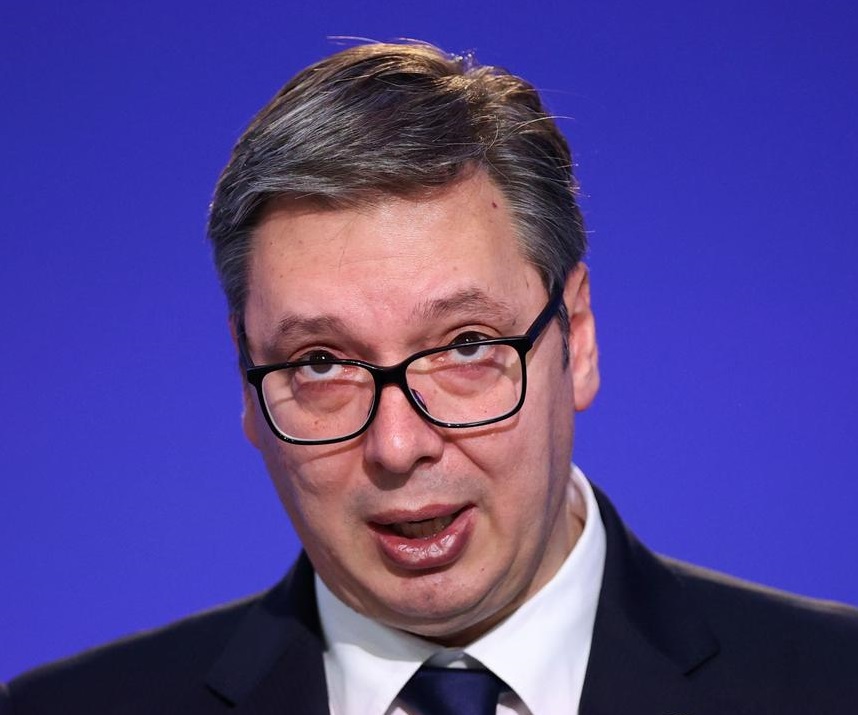
” Where and how we will place the army in accordance with the Constitution of Serbia, without endangering anyone, this is our job ” – Aleksandar Vučič.
Ledion Krisafi estimates that there is no danger of interstate war in the Balkans, as it would damage and isolate Serbia in the middle of Europe.
” I don’t think there is such a danger even though Serbia is surrounded by NATO. Although Kosovo is not in NATO, it is in Kosovo and President Vucic himself has stated several times that if the Serbian army crosses the border of Kosovo, it will face NATO .” – says Krisafi.
The addition of NATO troops in Kosovo
Despite the statement that NATO sees no imminent military danger in the Balkans, Stoltenberg stated that the Euro-Atlantic Alliance is considering a permanent increase in its forces in the region to prevent further conflicts.
” We must understand why this region is so important for NATO. We see no immediate military threat against NATO allies in the region. What we see is the increase in tensions, especially in Kosovo. We see that there are tensions in Bosnia and Herzegovina, but we do not see a direct, immediate military threat against the countries. Yes, we are concerned when we see that some countries in the region are going in the wrong direction, but at the same time we must understand the strength and importance of NATO. In Kosovo, we have increased our presence with 1000 additional troops and heavy weapons. Of course, we are vigilant and closely monitor the situation. – said Jens Stoltenberg at the press conference .
cONcluSiON
Statements by Ukrainian President Volodymyr Zelensky, that there is information that Russia is seeking to start a war in the Balkans and that the conflict in Ukraine could turn into a global conflict, reflected with bombastic headlines in various media, placed in front of the statements of the European Union and Euro-Atlantic Alliance, tell about two different stories.
The threat to the Balkans, about which Ukraine said it has information, was called by the European Union as a continuation of the early policies and influence that Russia is trying to exert in the region and not as an imminent military threat to the Balkan countries.
The researcher Ledion Krisafi Krisafi is of the same opinion when he argues that a major conflict in the Balkans is very unlikely to happen, precisely because of the presence of NATO in the region and Serbia’s inability to survive alone in case of isolation.
” Besides causing small regional problems and crises, sometimes in Kosovo, sometimes in Bosnia and sometimes in Montenegro, I don’t think that Serbia has the capacity either to start a big war in the Balkans or to withstand such a war. Serbia would face such a European and American reaction of sanctions and isolation that a country like Serbia cannot afford. ” – argues Krisafi.
What Serbia can cause, continues Krisafi, are events like the one in Banjska, small local conflicts that cause crises lasting several months that give Serbia the opportunity to postpone as much as possible the moment when it will have to sign a final agreement with Kosovo.
* This article was produced as part of the regional initiative Center Against Disinformation of the Western Balkans




